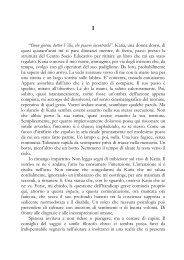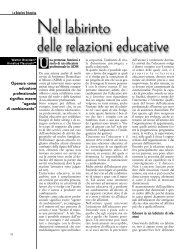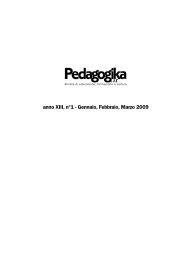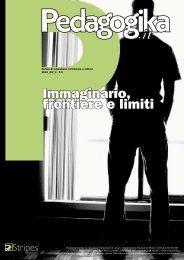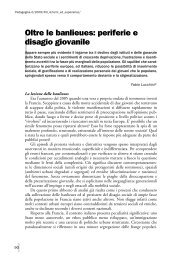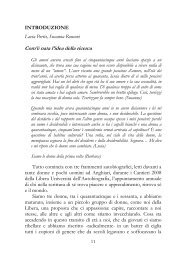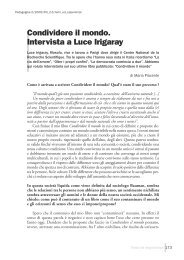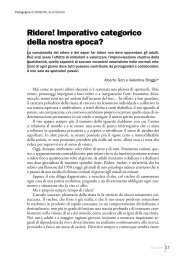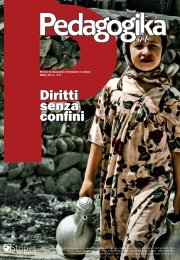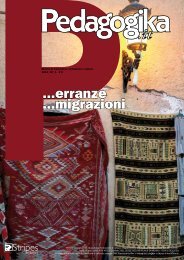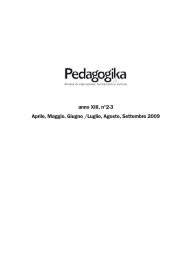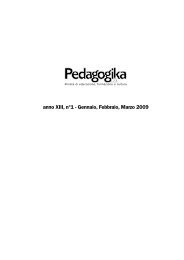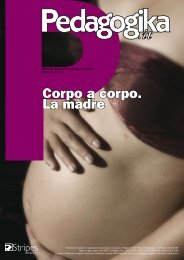(Il)legalità? - Pedagogika
(Il)legalità? - Pedagogika
(Il)legalità? - Pedagogika
You also want an ePaper? Increase the reach of your titles
YUMPU automatically turns print PDFs into web optimized ePapers that Google loves.
<strong>Pedagogika</strong>.it/2011/XV_1/(<strong>Il</strong>)<strong>legalità</strong>?/<br />
(<strong>Il</strong>)legality?<br />
A recent document, proposed by Telmo Pievani and Alberto Martinelli, debates,<br />
offering a revision, the Seville Statement on violence of 1989, when a team<br />
of scientists and scholars ventured on demonstrating that war is not an innate<br />
need, an innate necessity in human nature. The document goes beyond this optimistic<br />
vision maintaining that: “…It’s time to stop looking for a biological or genetic<br />
explanation of war and thinking that man is naturally good…war and peace<br />
are both in the abilities of man…”.<br />
These reflections are going to be submitted to scholars who will attend the<br />
world conference on peace and they are going to be the object of a proposal in Italian<br />
schools whose basic concept is that “the same species that have invented war<br />
are able to invent peace.”<br />
We believe the same approach, which regard war/peace, love/hate antinomies as<br />
cultural and social inventions, could be easily extended to concept of legality and<br />
illegality too: they are cultural attitudes bound to historical events and geographical<br />
distribution, they do not respond to nothing predetermined and, therefore,<br />
they could be subjected to corrective actions, political actions and intentions, ethical<br />
valuations, pedagogical interpretations and choices.<br />
Dealing with these topics we wonder where laws draw their force; how concept<br />
of legality originates and grows stronger; what are the conditions that promote<br />
the consolidation of widespread behaviors of illegality, deviance and more or less<br />
organized crime; what place takes the weakening of father figure authoritativeness<br />
in rarefying of public ethics. And, moreover, whether there are structured or unstructured<br />
codes conceived to transfer behaviors of indifference or impermeability<br />
to the concepts of law, lawfulness, and legality; whether it is possible to pursue<br />
consistent cultural and pedagogical strategies to contrast that sort of ethic relativism,<br />
perceived by many as the fertile source of a wider process of social life decay<br />
and barbarization that, especially in the last years, is assailing public dimension.<br />
Dossier 9



